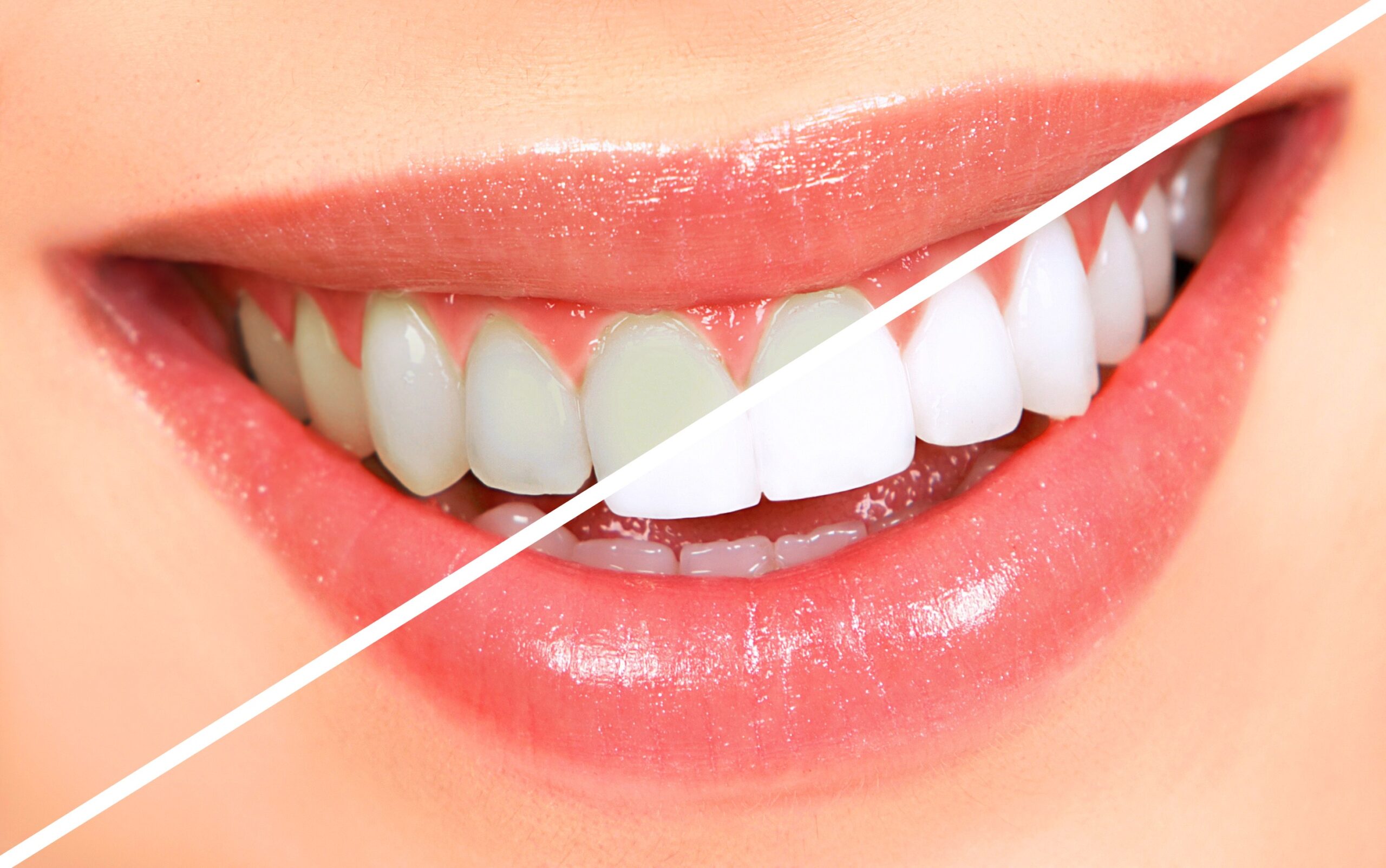
- Durchschnittliche Dauer des Aufenthalts: 2 Übernachtungen
- Anzahl der Besuche: 1 Besuch
- Dauer der Operation: 1-2 Stunden
- Anästhesie: Keine Anästhesie
- Dauer der Wiederherstellung: 1 Tag
What is teeth whitening?
Teeth whitening, also known as bleaching, is a cosmetic dental procedure aimed at lightening the color of teeth and removing stains or discoloration. It involves the application of a bleaching agent, usually hydrogen peroxide or carbamide peroxide, to the teeth. This bleaching agent breaks down stains into smaller, less visible particles, resulting in a brighter and whiter smile. Teeth whitening can be performed in a dental clinic by a dentist. It’s a safe and effective way to enhance the appearance of teeth, but results may vary depending on the severity of staining and individual factors.
Teeth whitening in Turkey
It is possible to get a teeth whitening procedure after any kind of surgery or a treatment since it doesn’t require anesthesia and it is performed rather quickly. In Turkey , many patients get a teeth whitening procedure after various plastic , bariatric surgeries and hair transplant operations. It is quick , easy and much more affordable compared to most countries in the World.
Who is eligible for Teeth whitening?
- Patients with Good Oral Health: Candidates should have healthy teeth and gums, free from cavities, gum disease, or other oral health issues. Any underlying dental problems should be addressed before whitening.
- Patients with Surface Stains: Teeth whitening is most effective for extrinsic stains caused by factors like food, beverages, or tobacco use. Intrinsic stains, which originate from within the tooth, may require alternative treatments.
- Patients who have No Allergies or Sensitivities: Candidates should not have allergies to the whitening agents used in the procedure, and they should not have extreme tooth sensitivity or gum sensitivity.
Aftercare and recovery process of teeth whitening
After teeth whitening, it’s essential to follow specific aftercare guidelines to maintain results and minimize sensitivity. Avoid consuming staining foods and beverages for at least 24-48 hours, including coffee, tea, red wine, and dark-colored foods. Brush teeth gently with a soft-bristled toothbrush and non-abrasive toothpaste. Use a desensitizing toothpaste if experiencing sensitivity. Attend follow-up appointments as recommended by the dentist. Maintain good oral hygiene practices, including regular brushing, flossing, and dental check-ups. If sensitivity persists, consult with the dentist for further guidance and recommendations.
